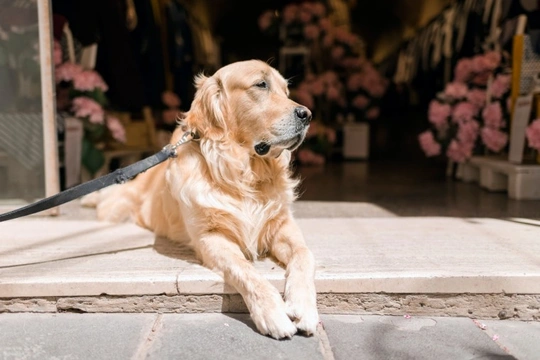
Six ways you can reduce the chances of your dog being stolen
The thought that someone might be watching our dogs with a view to stealing them is deeply unnerving, but dog theft overall is very uncommon and far less likely to occur than a dog simply wandering off or getting lost; and so this is something that many dog owners worry about rather more than they should.
However, it is still important to make yourself aware of the potential albeit small risk of your dog being stolen and take sensible steps to protect against this; and to work this into your day-to-day dog care routine so that it becomes habit rather than something that keeps you up at night with worry.
As mentioned, the chances of your dog being targeted by dog thieves, either opportunistic ones or those planning a theft, are very low, statistically speaking; but by following these six tips, you can dramatically reduce the chances of your dog being stolen, even if your dog is really valuable and likely to be just the sort of dog that thieves target. Read on to learn more.
Never leave them out in public unattended
If you always ensure your dog is under your eye when out in public, you greatly reduce the risk of a thief being able to take them. Always keep them in sight when off the lead when out on walks, and never leave them unattended.
Dogs left in cars, tied up outside of shops, or even beside your table at a café while you pop to the loo will all be easier to steal!
Plus, if you leave your dog regularly in the same places, people may spot this over time and this will make your dog easier to target by someone who might otherwise not even have given your dog a second glance.
Supervise your dog in the garden and secure fences properly
Dogs out loose in gardens are rarely properly supervised, and thefts from gardens are much more common than thefts from public places.
Always watch your dog when they’re in the garden if they can be seen and reached from outside, or ensure that gates to gardens are locked and that your fencing is high enough to prevent someone being able to reach in and lift your dog out.
Also, ensure your fencing or walls are secure, to prevent your dog wandering out; and check them regularly for signs your dog has tried to dig out, or that areas are becoming worn.
Be vigilant
Being aware of what is going on around you is important for your own safety, as well as that of your dog! Being vigilant means taking in what is going on and following your instincts when something seems odd or amiss, and this is not the same thing as being paranoid.
This means when you’re walking your dog, don’t do so staring fixedly at your phone or with headphones in, and instead, look around you, and train yourself to notice people, situations, and generally, the signatures of what’s happening and anything that doesn’t fit or looks different.
Always vet people you hire to help with your dog
Most dog owners hire help for their dog now and then, particularly dog owners who work; from groomers and kennels to daycare facilities to vets, walkers, and pet sitters.
Whenever you hire someone new – particularly when it comes to someone who comes to you, rather than fixed premises like your vet or an established grooming business – do your background research before you let them into your home and introduce them to your dog.
This means taking (and following up on) references, seeing proof of ID and address, asking for DBS checks where relevant, and verifying any information they give you independently.
Ensure you can prove ownership of your dog
Ensuring you can prove ownership of your dog can help to not only reunite you if you are parted, but even potentially stop your dog being taken in the first place.
For instance, if you and a partner split up, could you prove which of you the dog belonged to? Whose name is the microchip in, and registered as their owner with the vet? If your dog is not microchipped and identified with a collar tag at all, this is both in breach of the law, and likely to make it virtually impossible to prove your dog is yours if they were taken, making them more likely to be targeted too.
Spay and neuter
This might seem a little bit of an odd way to prevent dog theft, or at least reduce the chances of it happening; but by having your dog neutered, you remove their appeal to a specific type of dog thief, being those that are stealing dogs to produce lucrative litters or father puppies.
You also help to reduce the chances of your dog straying in search of a mate and potentially falling into the wrong hands too!



